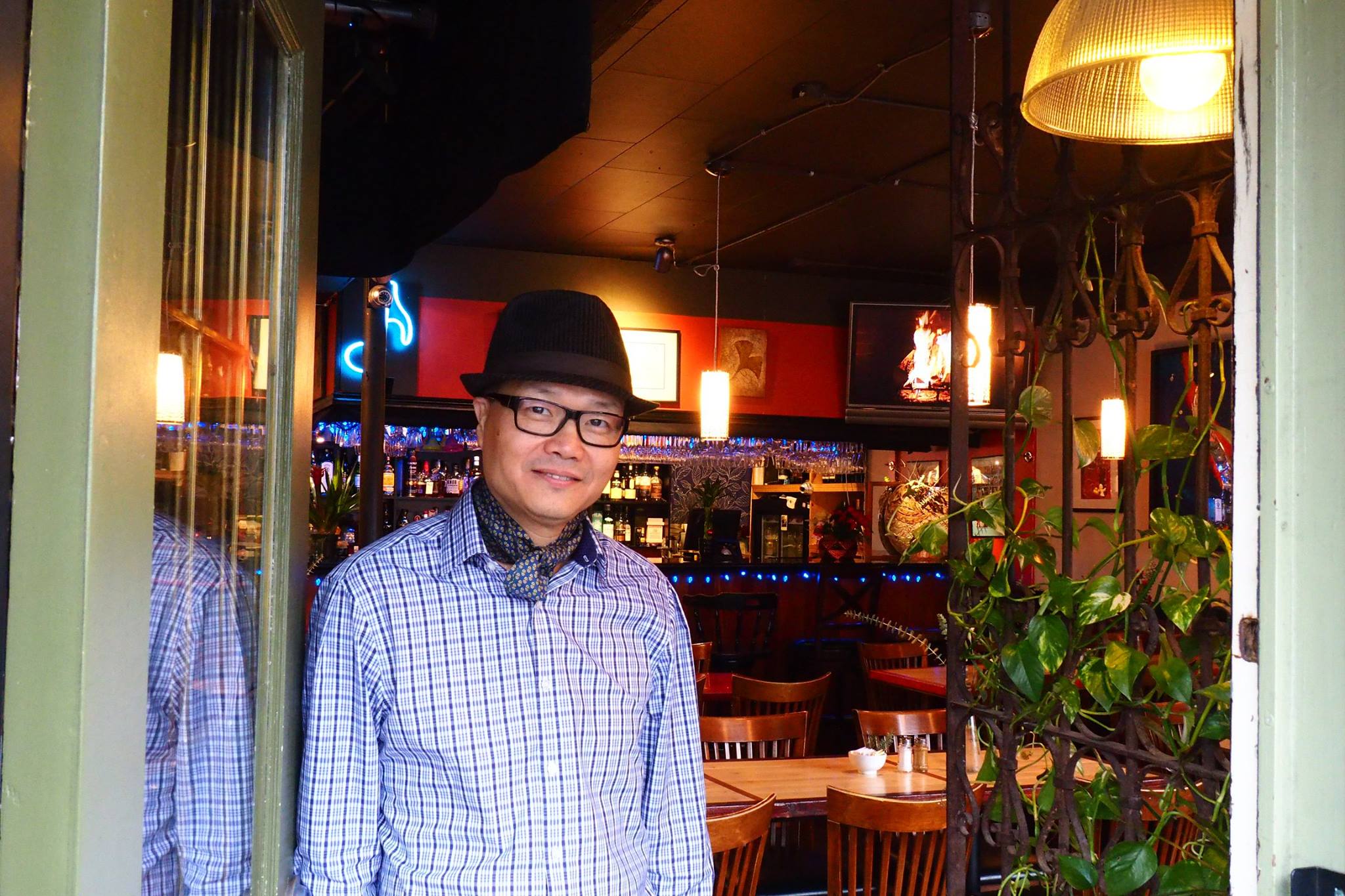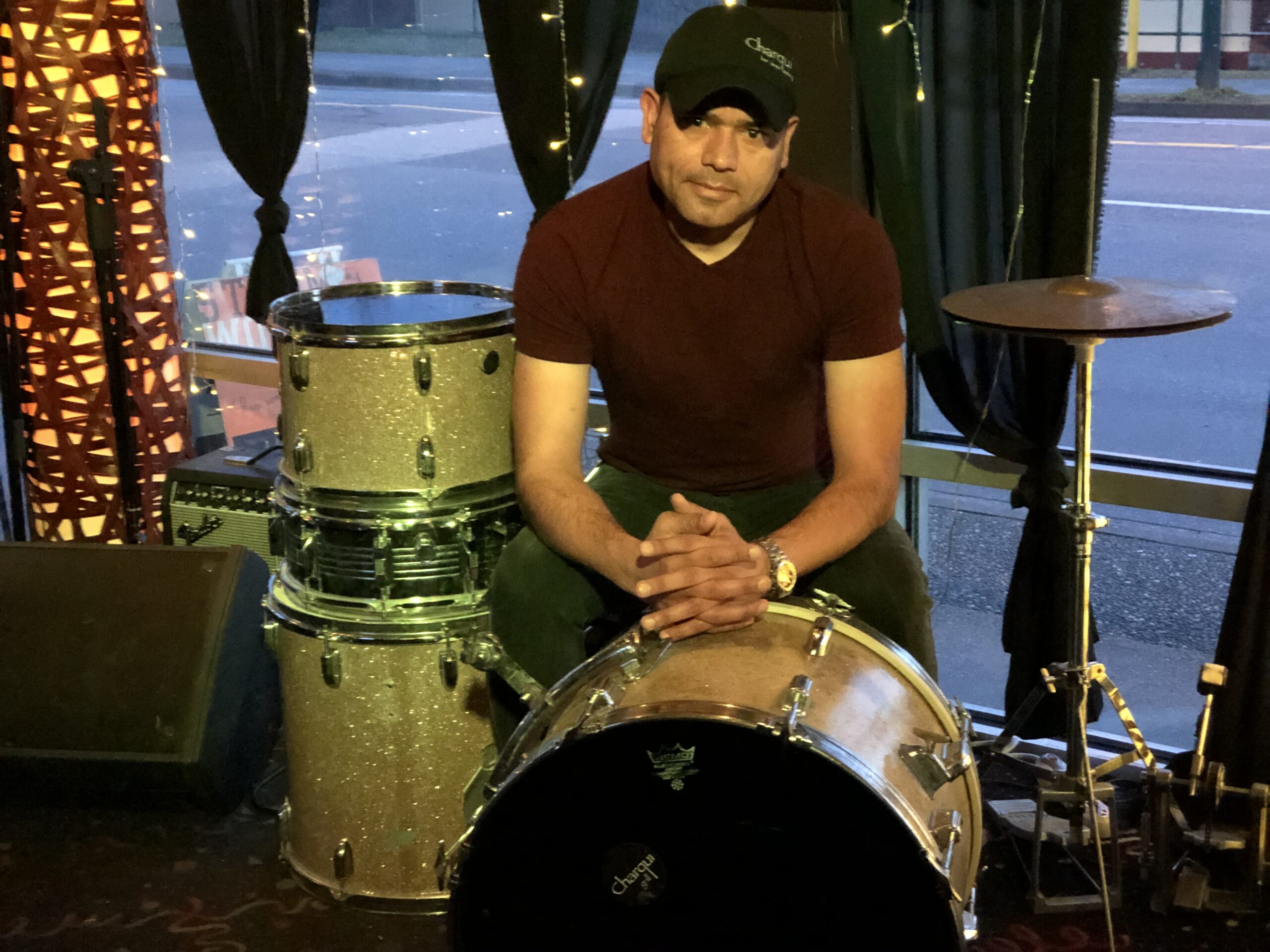Charqui, in the trendy Kitsilano area of Vancouver, is a cultural conduit where music and food from all corners of the world are served up in uncompromising originality to reflect the diversity of the city.
The owner, Sanjay Pandey is of Indian origin; his crew is mostly South American while the menu is influenced by the cuisines of South Asia and the beer is simply local.
But it’s the live entertainment that has kept the Charqui gastro-pub going since it opened its doors in 2012.
The day music died
That was until Pandey got a call last spring about the new COVID-19 rules.
“It was the day when the music died in my place,” he said.
“We use to have live music every day providing a much-needed venue for musicians but with the COVID rules, we may have one show a week with the performers behind plexiglass,” said Pandey, whose business is being largely kept alive by socially-distanced regulars and takeout orders.
Over on the east-side of Vancouver, Hood 29 formerly Cottage Bistro, a beloved blues hangout has shuttered its doors after 28 years in business.

“I was thinking of retiring in a few years, but COVID-19 came and accelerated everything,” said Eugene Dong, the owner, whom local media call the ‘Bluesman’ of Vancouver.
“I hope it gets back to normal soon,” said Dong, originally from China, whose venue also featured live jazz, pop music, poetry and comedy nights.
Pandey and Dong are the faces of an industry ravaged by COVID-19 that need direct government support to stay alive according to research by Music Canada.
“This latest research confirms that Canadians view live music venues, like festivals, concert halls and pubs, as economic and cultural lifelines within their communities,” said Patrick Rogers, CEO of Music Canada.
“Canadians also understand that the pandemic will have severe impacts on the long-term viability of the live music sector which affects Canadian culture in the long run,” he said.
“The research also confirmed what we have long believed to be true: music lovers can’t wait to get back to seeing live shows, once it’s safe to do so. But Canadians also believe that artists, live music venues, crews and others working in the industry will require continued support long after other sectors of the economy can reopen. Notably, most Canadians will be “disappointed” if more venues go out of business.”
According to the research, one in five Canadians has a favourite live music venue in their community where they attend events, and half believe it is likely the venue will close due to the impacts of the pandemic.
Canadians polled believe that further live music venue closures will mean thousands of jobs lost, fewer musicians and music will be created, and new and upcoming musicians will be lost without the opportunity of playing in live music venues.
Live music businesses hit hard
Over the past year, live music businesses have lost 92% of revenue and any cash flow is long
since depleted. Despite this, fixed expenses like rent, mortgages, property taxes and utilities have continued.
Erin Benjamin, President & CEO of the Canadian Live Music Association said venues are closing their doors in increasing numbers, for circumstances beyond their control and people are recognizing the extent of the loss, and what that loss means – economically, culturally, and socially.
“Direct financial support today from governments is urgently needed; it can keep more venues alive, helping us to preserve as much of our vital cultural infrastructure as possible until the industry can fully recover,” he said.
Miranda Mulholland, artist and Chair of Music Canada’s Advisory Council said artists, and emerging artists especially, depend on live performances to develop their craft, generate a following, and gain income.
“The opportunity to do that, at every milestone in your career, is only possible with multiple venues from the smallest locations to the larger stages and concert halls,” she said.
Earlier this month, the government of BC threw a lifeline to the industry by providing 113 emerging and established musicians $1.27 million to support their career development.
“Music has provided us comfort during this pandemic and the people behind the industry need our support now to come back strong in the future,” said Melanie Mark, Minister of Tourism, Arts, Culture and Sport.
“We’re proud to help B.C. artists grow their careers so they can keep sharing their talent and inspiring people both here and around the world.”
Carsen Gray, an Indigenous pop artist and songwriter from Skidegate said “This grant gives me the ability to produce my next record and promote it. I’m so thankful for this opportunity to share my music with people.”
Both Pandey and Dong hailed direct government grants to musicians to help them through the pandemic.
“I wish they would do the same for live music venues that are also suffering,” said Pandey.
A multiple-award winning journalist, Fabian Dawson is an internationally acclaimed author, filmmaker and media expert. His work over the last four decades spans the globe and he also serves as a consultant/strategic advisor to a variety of international companies. As deputy editor-in-chief of The Province, part of the Postmedia chain, Dawson led initiatives within a special publications group to provide directed content for a variety of organisations. He was named the 2019 recipient of the Bruce Hutchison Lifetime Achievement Award at Jack Webster Awards. Dawson has been invited by the governments of India, Malaysia, Taiwan, China, Hong Kong and the United States to act as a media observer/advisor on a variety of Asian-Canada issues. Dawson, now operates FD Media, which specializes in harnessing editorial assets to revenue generating opportunities.





